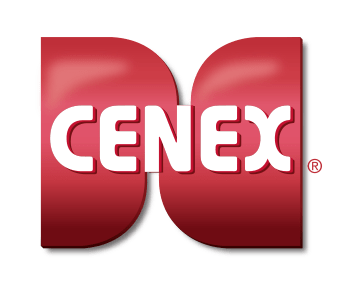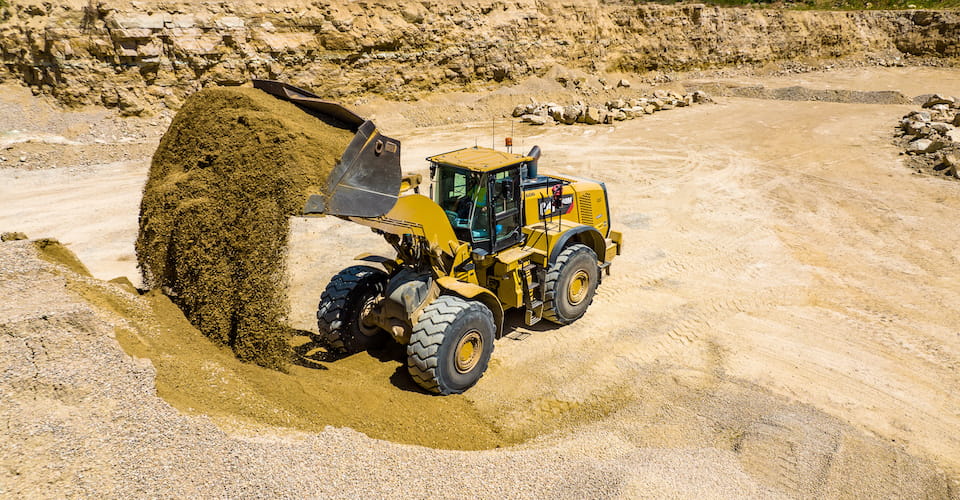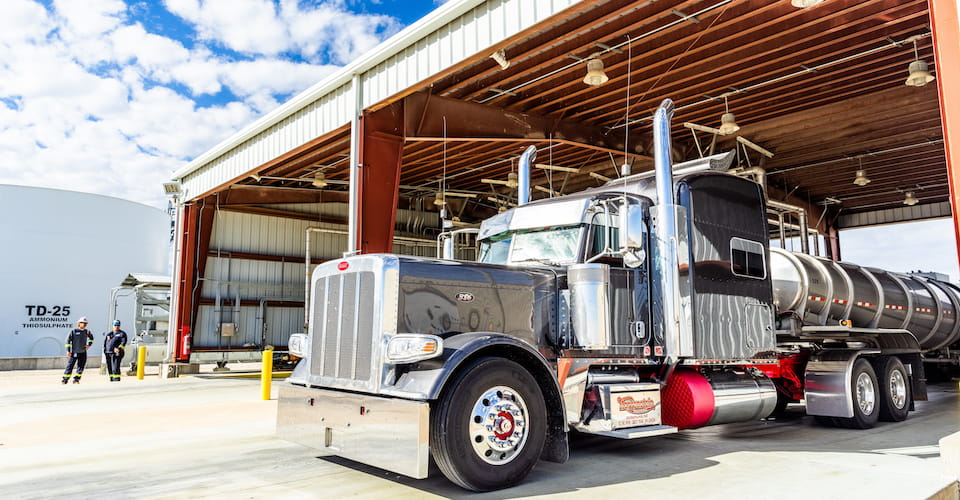
Regular upkeep of your equipment and proper inventory storage of your fuels and lubricants are essential to running your operation smoothly and efficiently. Routine maintenance can address minor issues before they escalate into major problems. At Cenex®, we believe that investing in proactive maintenance and premium products is the key to a top-performing shop.
Choosing the right products matter
Modern equipment demands products that work as hard as you do. Today’s diesel engines, engineered with tighter tolerances and more intricate parts can be more prone to injector failure and filter plugging. Using a premium diesel fuel like Cenex Roadmaster XL® and Cenex Ruby Fieldmaster® is essential. Cenex premium diesel fuel, with its comprehensive additive package, offers the power and protection you need to keep your operation running smoothly. To help ensure your equipment’s performance and service life, it is also important to pay attention to your fuel storage. Fall is the ideal time to perform tank maintenance to remove water and other contaminants before cold weather hits.
At the end of a long harvest season, we know it can be tempting to lock up the shop without a second thought about your fluids. But oil is the lifeblood of your machines. It circulates through your equipment to keep key components protected and running smoothly, and it is important to pay just as much attention here as you do to your fuel. Using a premium-quality Cenex lubricant is a start but storing it correctly can affect its longevity and performance.

Check out these four tips to ensure you are successfully storing and maintaining your fuels and lubricants.
1. Set your storage space up for success
Proper storage of your bulk fuels and lubricants is essential for safety and maintaining product quality. Tank maintenance helps ensure your fuel supply stays clean and free of harmful contaminants in your storage tank — and remains that way until it reaches your equipment’s fuel system. Over time, water can be introduced to your fuel storage tank through condensation, especially in seasons where temperatures rise and fall below 32°F. A significant amount of water in a tank can cause problems, including rust and the growth of microbes. Removing water, contaminants and other impurities from the storage tank prevents them from entering your fuel system, where they can lead to corrosion, filter plugging and ice formation in cold weather climates that severely hampers engine performance.
Clean, consistent storage for your lubricants is equally as important to keep your operation running smoothly. Ensure your lubricants are stored in a safe, dry, temperature-controlled area. Fluctuating temperatures, condensation and airborne debris are all potential threats to your lubricant's shelf life. To minimize the risk of damage, store your lubricants and equipment in an enclosed facility and make sure they are kept away from heaters, sunlight, doors or other areas prone to significant temperature changes.
2. Make fuel storage maintenance a priority
Periodic tank cleaning is essential. Regular cleanings can help keep microbes, bacteria, dirt and other contaminants from infiltrating your supply. Drain water and remove contaminants every six months, or as often as needed. If a tank is left uncleaned, it can lead to more money spent on fuel and potential equipment repairs.
Installing proper filtration on bulk tanks and fuel systems is a critical step. Engine manufacturers equip their engines with fuel filters to protect the fuel system. Confirm filter compatibility to ensure you’re using the appropriate size filter for your operation and replace these filters according to the manufacturer’s recommendations.
Water removal is crucial. Water in diesel fuel is not only detrimental to filters, fuel pumps and fuel injectors, but it can also corrode metal components and promote rusting and freezing within the fuel system. Regularly draining any water from the bottom of your tanks will help avoid the long-term damage that can result if left to collect too long.
3. Don't forget about your lubricants
To maintain product integrity, ensure that each container of lubricant is clearly and correctly labeled to avoid confusion and cross-contamination. This practice will help in keeping the right lubricant in the right equipment application while also reducing the chance of errors.
Using a first-in, first-out (FIFO) system will also ensure older stock is used before newer stock. Additionally, keep an eye out for damage to your oil storage containers, as exposure to air can be detrimental to lubricants due to the humidity it brings. If a storage container is damaged, moisture can collect and contaminate the fluid inside, compromising its ability to lubricate and putting your equipment at risk.

4. Understand the health of your supply
Periodic sampling is a great way to understand the condition of your fuel and lubricants. At Cenex, we offer a comprehensive fuel and lubricant sampling program as part of our dedication to quality. Think of it as an annual check-up. As Charlie Carter, product quality and additives manager at CHS, points out, “Being proactive is the key to proper fuel maintenance. Routine sampling, ideally occurring before your busiest season, will help you avoid costly downtime and give you peace of mind the next time you reach for that nozzle.”
Collect a small sample of used oil from your equipment too. Kevin Meyer, quality assurance expert at CHS, adds, “It can provide equipment owners with important information such as wear metals, contaminants and viscosity to ensure the oil is providing the equipment with the protection it needs.”
Cenex is with you
Proper storage, regular maintenance, and proactive monitoring of your fuels and lubricants not only protects your equipment but also saves you time and money in the long run. At Cenex, we are committed to helping ensure your shop runs at peak performance year-round by providing premium products and expert advice.











